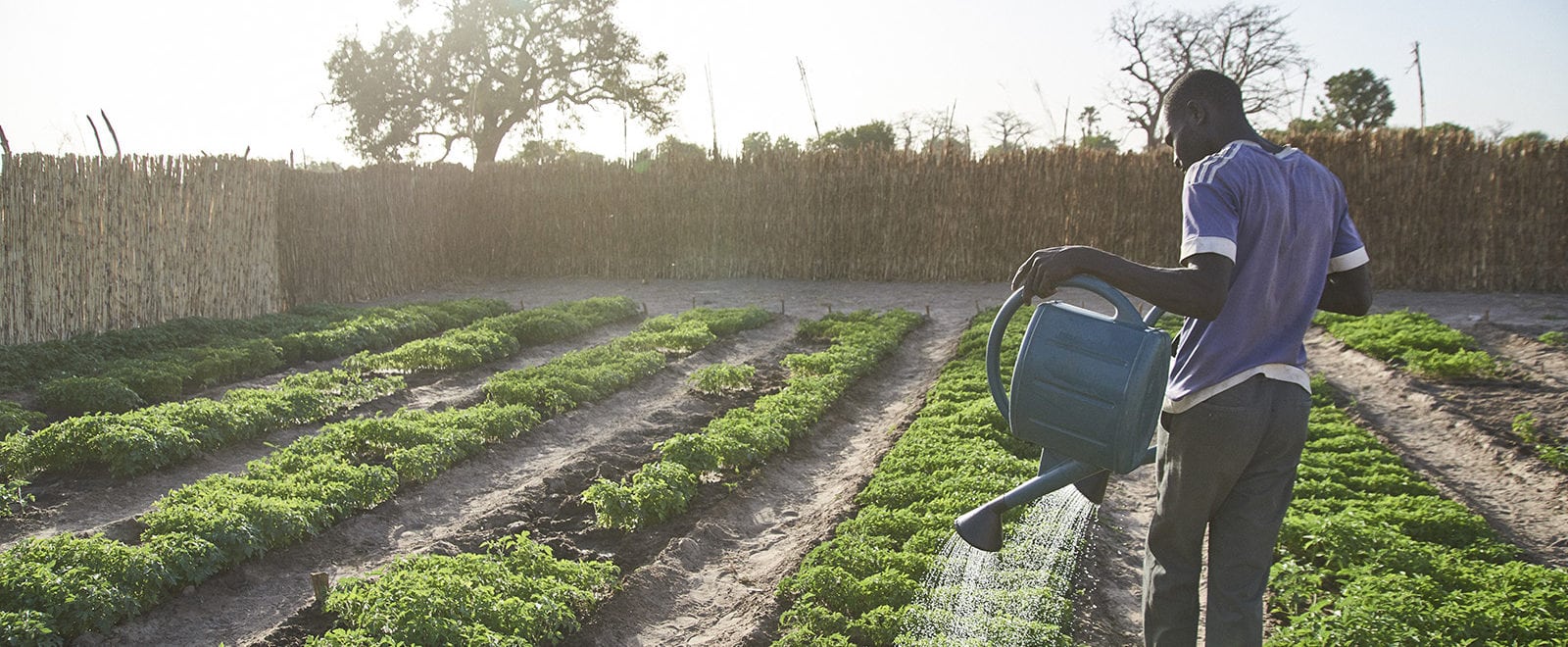It’s clear by now that the Trump administration is hostile to anything that has to do with human rights. It is determined to disrupt basic rights and dismantle any kind of multilateral governance, both in the name of “America First.” The hostility is especially clear when it comes to urgent issues like climate action, migration, indigenous rights and food security.
In the U.S. the Trump administration and its allies in Congress are intent on cutting SNAP (the Supplemental Food Assistance Program, formerly known as food stamps) while at the same time fueling big agribusiness corporations and squeezing those in need even more.
And at the international level, the Trump team is now actively trying to tear down successful spaces where governments, civil society, and peoples’ organizations have been meeting to tackle critical issues around hunger, agriculture, and securing the right to food for all people.
Under the Obama administration in 2009, the U.S. became the major donor to a fund called the Global Agriculture & Food Security Program (GAFSP), established to support investment gaps in developing countries after the food price crisis in 2007 and 2008. The U.S. pledged more than $600 million out of the total $1.2 billion contributed by donors.
The Trump administration, however, has disregarded the new rise in world hunger. At the November 2017 GAFSP meeting, it sent delegates to announce that the U.S. would withdraw from the fund and even proposed to end it, despite the important investments it is making in agriculture for food security.
With around 100 projects, the GAFSP has reached more than 8.6 million people in poor countries and helped increase productivity and livelihoods for small-scale farmers. It has brought about gender equality and women’s empowerment, made farms more climate resilient, increased employment, and improved nutrition. However, due to the actions of the U.S., the GAFSP is running out of funding to continue its operations. Without further funding, the GAFSP will slowly die while the number of people suffering from hunger will continue to rise.
The U.S. is not doing any better in the Committee on World Food Security (CFS), the foremost global governance platform dealing with food security. The food price crisis in 2007 and 2008 also pointed out that there was no space for governments and non-state actors to convene and converge on policy decisions to achieve the right to food. The CFS, which existed previously, was reformed in 2009 to fill this missing space and was the first institution in the U.N. where representatives of governments and representatives from civil society, including representatives from peoples’ organizations, could negotiate equally.
While the CFS doesn’t fund programs, it provides policy guidance to governments to make better informed decisions to achieve food security and nutrition for their populations. The most notable achievement that came out of the CFS was the negotiation and the endorsement of the Tenure Guidelines on responsible governance of land, fisheries and forests (VGGTs) in 2012, which provided policy guidelines for governments to deal with the threats of land grabbing. The convening power of the CFS made it possible to achieve an international agreement on land rights, one of the most sensitive and political issues to discuss and agree on, and it was actually the U.S. delegation to the CFS that helped to make it happen.
The U.S. chaired the intergovernmental negotiation process in 2011-2012, and I still remember the U.S. Chair devoting extra time and energy to the completion of the negotiations. I remember the U.S. Ambassador jumping in late at night to resolve deadlock between an Arabic country and the rest of the room, allowing all of us to celebrate the VGGTs conclusion and the historical recognition of the legitimate tenure rights for millions of indigenous people, communities, women and tribes.
That was seven years ago.
Now, I observe the current U.S. delegation using all means at their disposal to stall, block, and disempower the CFS. U.S. delegates intervene constantly to block progressive policy-making. In a place where consensus building is the main decision-making process, they claimed veto power by raising a “red flag” to any agroecology report or discussion in the CFS. However, there has been push-back against their obstructionism. The U.S. delegation opposed a proposal to organize a special event on the human right to food in the 2018 CFS Plenary, but the other actors in the CFS would not back down. There were several meetings futilely spent trying to find a compromise for the U.S. delegation, and so finally the Plenary decided to push past the U.S. and force them to give up their objection.
However, the U.S. delegation used and continues to use the current evaluation process of the CFS – which is supposed to improve the CFS – to instead downsize its functions, curb the committee’s capacity to promote policy convergence and governments’ accountability, and reduce the CFS to a mere space for information sharing.
Within the U.S. it is not going better. Forty million Americans are experiencing poverty, and 18.5 million Americans live in extreme poverty, according to a recent report by the Special Rapporteur on Extreme Poverty and Human Rights for the UN. While food insecurity is increasing, the upcoming Farm Bill contains proposals to cut social support for food programs (including SNAP), which would end or cut benefits for a substantial number of people with low incomes.
How far does Trump want to go in fueling inequality and pushing people into poverty?
ActionAid USA stands against his actions and will continue to work with those who are struggling for their rights.



